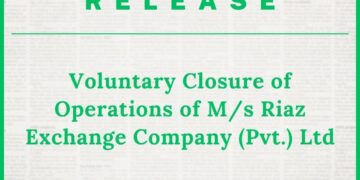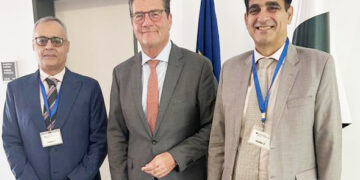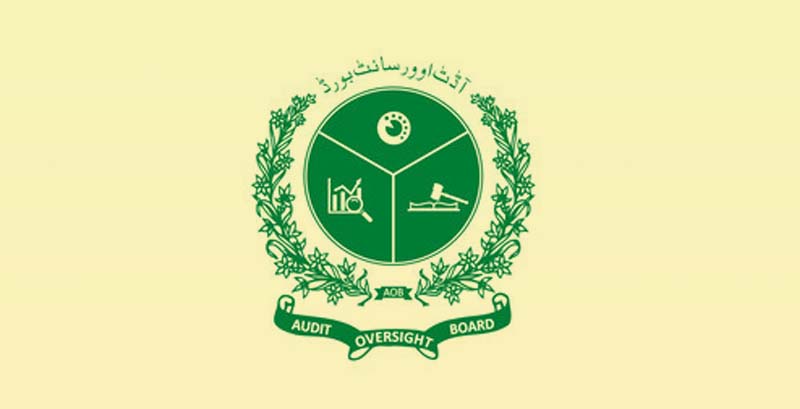On this world Humanitarian Day, In the light of destructions caused by the impact of Climate Change, Pakistan Humanitarian Forum stressed on the dire need to focus on climate emergency and humanitarian crisis and to take tangible steps and actions at program and policy level.
Pakistan Humanitarian Forum along with its member organizations is actively monitoring the situation and fully engaged with the government of Pakistan to provide a timely response and to conduct the need assessment of the affected population.
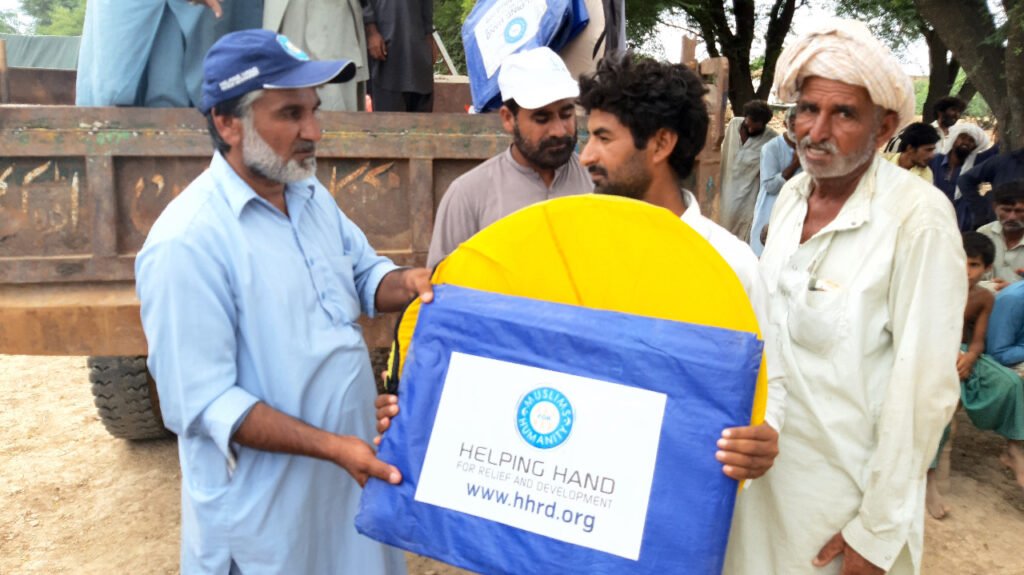

Pakistan Humanitarian Forum (PHF) member organizations (Islamic Relief, HHRD, Muslim Hands, Human Appeal, WHH, Concern, ACF, Save the children, AKAH, Care International, Muslim Aid, International Rescue Committee, Mercy Corps, IMC, Tearfund, ACTED, CESVI and Qatar Charity) are fully present in affected districts of Balochistan (Quetta, Pishin, Kachi, Mach, Lasbela, Killa Abdullah, Kalat, Sibi, Jhal Magsi, Kot Magsi, Kalaat, Noshki, and Killa Saifullah), KP (Peshawar, Laki Marwat, Shangla), Punjab (D.G. Khan, Tounsa Shareef, Rajanpur, Jhang, Mianwali, Rajanpur, Lahore, and Rahimyar Khan), Sindh (Karachi, Keemari, Hyderabad, Dadu, Thatta, Badin, Mirpur Khas, Jamshoro, and Soomar Goth), and GB ( Gilgit-Baltistan and Chitral) and providing relief and rescue operation in full zeal. Collectively these organizations have reached out to around 109,441 beneficiaries and 15,635 households by providing cooked meals, dry fruit parcels, filtered water, NFIs, Shelter, and Health & hygiene support.


While visiting the affected part of Balochistan, the Country Director of Islamic Relief, Mr. Asif Sherazi mentioned that “The areas of Noshki and Panjpai haven’t seen such rains for decades, resulting in damages that require urgent attention. Even the partially damaged houses are not livable forcing people to spend days and nights in open under extremely hot weather conditions.” He further added “Keeping in mind the scale of damages and losses, we need to work in close collaboration to create long-term impact. As we are in the early recovery phase, there is a dire need to focus more on disaster preparedness at national and provincial levels to minimize the risks in the years to come.”
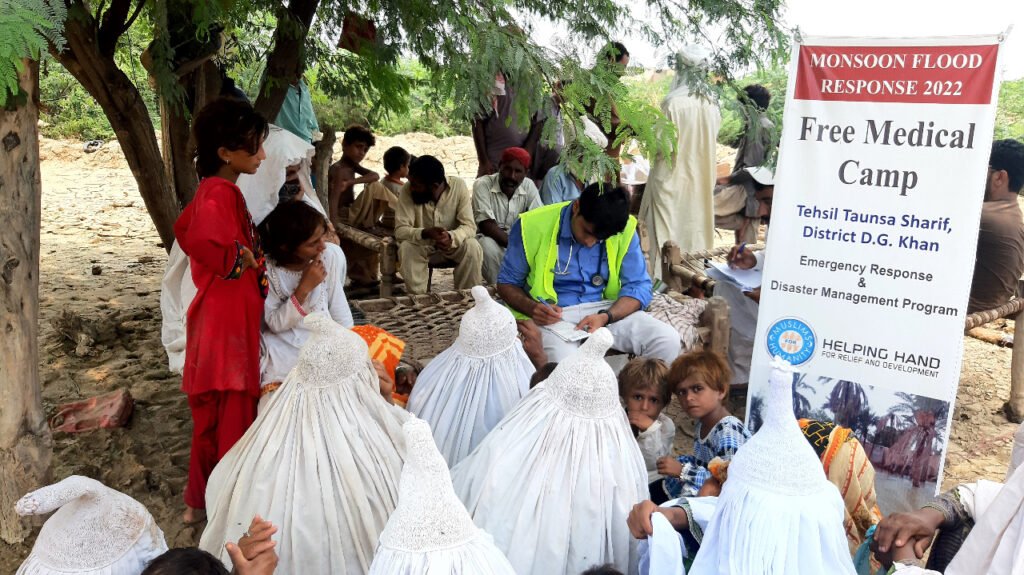

While visiting Balochistan during ongoing flood situation, we have realized that people are in dire need of shelter, food, and non-food items. Though Muslim Hands provided immediate response and reached out to 27,000 people by providing food staples, cooked meals, clean drinking water and NFIs. However, the situation is still worst, and an integrated approach is required to cater the needs of flood affectees said, Mr. Javed Gillani, Country Director, Muslim Hands.
To better provide the response services, Dr. Farah Naureen, Country Director, Mercy Corps shared, that $ 40,000 will be invested in District Quetta to cater the needs of 300 families 1950 individuals by providing food and non-food items.
While responding to the situation and holding the meeting with provincial and national authorities to provide coordination support to mobilize resources at all levels for the ongoing flood emergency, Mr. Shahid Kazmi, Country Coordinator, Pakistan Humanitarian Forum (PHF) shared that “PHF and NHH (National Humanitarian Network) are rapidly providing the response services and are speeding up the efforts for resource mobilization to provide extensive relief operations to and meet the people’s needs at all levels”. “He further added that the only challenge that INGOs, and NGOs have faced is the lack of emergency appeal and formal request for assistance. for scaling up the flood response at different levels”.
“He also shared that on World Humanitarian Day, we must reaffirm our commitment to take tangible steps to combat climate change and focus on the initiatives that help to make this country resilient and prosperous”.
World Humanitarian Day, commemorated every year to advocate for the survival, well-being, and dignity of people affected by crises, and for the safety and security of aid workers. This year World Humanitarian Day is celebrated at a crucial time, especially in the countries that are suffering from the visible impact of climate change. The monsoon emergency and the post-COVID-19 situation in many South Asian countries are giving a very tough time. Pakistan is on the top list of those countries that are quite vulnerable to climate change.
Pakistan Humanitarian Forum along with its member organizations is always at the forefront to provide support in any kind of humanitarian crisis in the country. The forum along with its member organizations played a substantial role during COVID-19 by reaching out to 11.1 million people in Pakistan through intervention in different sectors including food security, water, sanitation and hygiene, and health and education with a total investment of 9.7 billion PKR.
This year, unlike recent years, devastating monsoon floods gave a stark reminder that Pakistan is bearing the consequences of the climate emergency. Increased casualty rate, economic losses, and damage to infrastructure and livelihood causing a huge impact on vulnerable populations calls for an immediate yet coordinated humanitarian relief and response. According to the latest statistics, over 1 million people are badly affected by heavy rains and floods in Pakistan, mostly in Sindh (436,000 people), Balochistan (360,000 people), and Punjab (119,000 people) provinces. As per the updated statistics of NDMA, a total of 635 people died and 1016 people were injured. More than 1800 houses were badly damaged, and 110,440 livestock perished. People in the affected region are in higher need of shelter, food, and non-food items along with services required for health, education, and protection.









